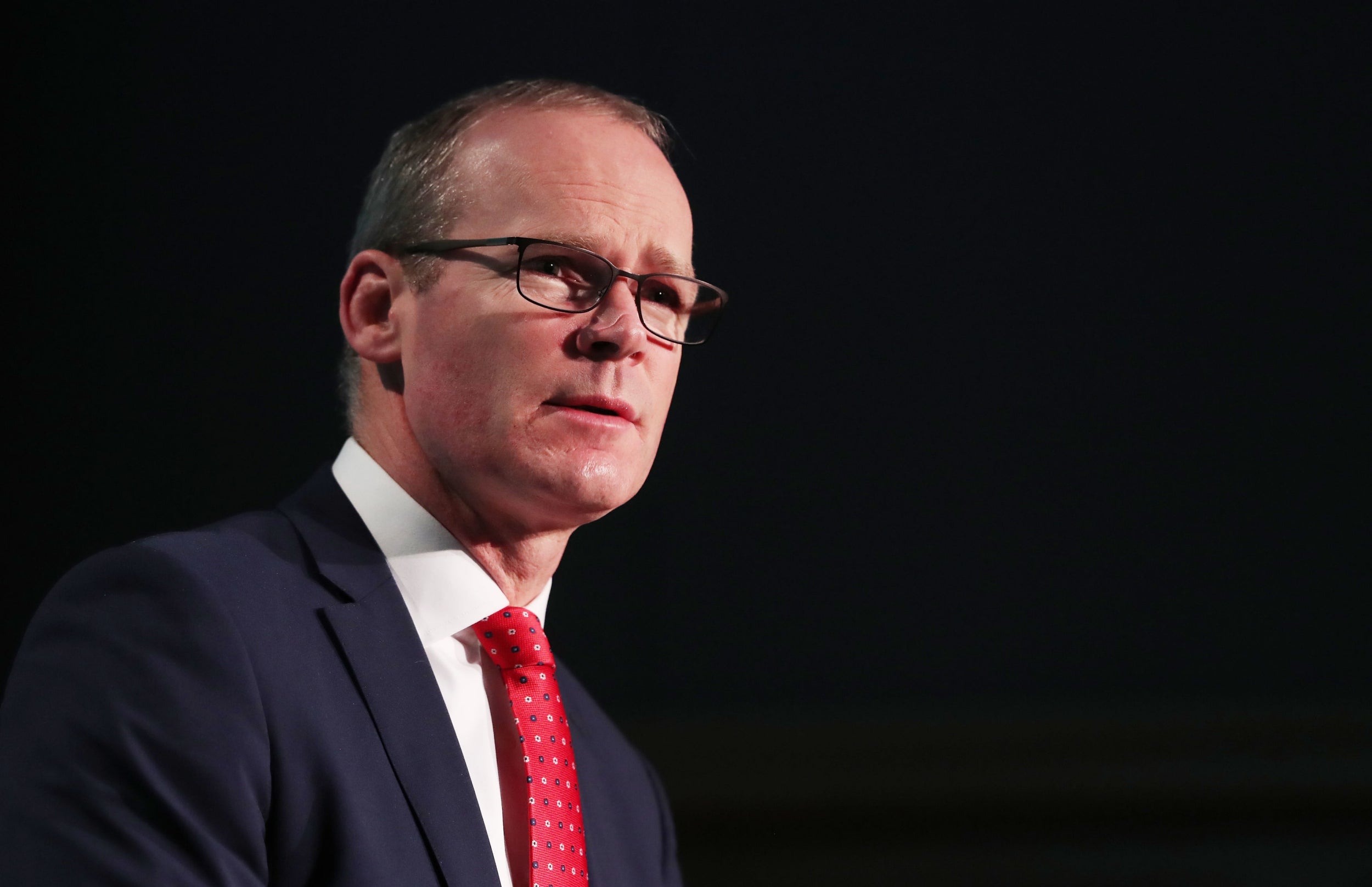Your support helps us to tell the story
From reproductive rights to climate change to Big Tech, The Independent is on the ground when the story is developing. Whether it's investigating the financials of Elon Musk's pro-Trump PAC or producing our latest documentary, 'The A Word', which shines a light on the American women fighting for reproductive rights, we know how important it is to parse out the facts from the messaging.
At such a critical moment in US history, we need reporters on the ground. Your donation allows us to keep sending journalists to speak to both sides of the story.
The Independent is trusted by Americans across the entire political spectrum. And unlike many other quality news outlets, we choose not to lock Americans out of our reporting and analysis with paywalls. We believe quality journalism should be available to everyone, paid for by those who can afford it.
Your support makes all the difference.The European Union has confirmed it would enforce a hard border between Ireland and Northern Ireland in the event of a no-deal Brexit.
The European Commission said it was “pretty obvious” that new infrastructure would be needed at the sensitive border if the UK crashed out of the EU without a deal.
The comments blow a hole in claims by Brexiteers that there would definitely not be a hard border in Ireland regardless of whether there is a withdrawal agreement or not.
But in a sign that Brexit is also testing relations between Brussels and Dublin, the commission’s words also appeared to create significant discomfort for the Irish government, which has been publicly insisted it will not impose a border.
It comes as the Irish border situation once again found itself at the heart of the Brexit debate with a car bomb in Derry and disputed reports that the British government had considered rewriting the Good Friday Agreement to solve its Brexit impasse.
Speaking on Tuesday lunchtime a spokesman for the commission said: “If you were to push me to speculate on what might happen in a no-deal scenario in Ireland, I think it is pretty obvious you will have a hard border, and our commitments to the Good Friday Agreement and everything we have been doing for years with our tools, instruments and programmes will have to take inevitably into account this fact.”
“So of course we are for peace. Of course we stand behind the Good Friday Agreement, but that is what a no-deal scenario would entail.”
Both the EU and UK could face sanctions under the World Trade Organisation rulebook if they fail to enforce the border. Under the agreement, countries cannot treat another country more favourably than any other country without a formalised trade agreement.
The so-called “most-favoured-nation” tariff rules are designed to prevent countries from targeting trade competitors with specific tariffs or quotas – but they have caused a major headache during the Brexit process.

Speaking after the commission’s statement, Ireland’s deputy prime minister Simon Coveney appeared to try and soften the blow, stating: ”In the absence of the backstop and a withdrawal agreement, we have a very difficult job to do to prevent border infrastructure, but of course that would have to be our focus.”
There was a political row in Ireland last week after Mr Coveney was caught on tape privately suggesting to another minister a border would have to be enforced.
The country’s opposition seized on the comments and said there was a “private understanding” at the top of government that a hard border would return.
The prevention of a hard border is an even bigger political priority in Ireland than the UK, where checks are intimately associated with the Troubles and civil war.
There have been warning signs over the febrile political situation in Northern Ireland over the past week, with a car bomb being detonated outside a courthouse in Derry on Saturday night.
This was followed by the hijacking of two vehicles by masked men in the city in in the early hours of Tuesday morning, a move police say was designed to “frustrate” an investigation into the bombing. No one has claimed responsibility for the actions, though police have said the dissident republican group the New IRA may be to blame.
Opposition to the Brexit withdrawal agreement in the UK has focused on the Northern Ireland backstop.
Eurosceptics and others say the mechanism, drawn up by negotiators to avoid a hard border re-emerging, would be a breach of British sovereignty and trap the UK in a customs union that it could not leave.
Some eurosceptic Tories have claimed no hard border would be enforced under any circumstances and that the EU and UK are wasting their time looking for a solution. Last year Juilan Lewis, a Tory MP, told Theresa May to ask the EU “who would actually construct” the border.
“The Irish certainly won’t, the British certainly won’t, so unless the EU army plans to march in and build it, it surely can never happen,” he said.
Other MPs from the prime minister’s party have expressed similar sentiments.

Join our commenting forum
Join thought-provoking conversations, follow other Independent readers and see their replies
Comments